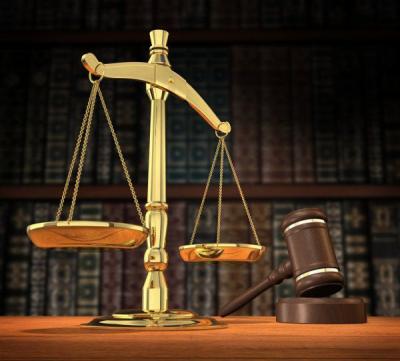L’acquittement des quinze personnes par la Cour intermédiaire à la suite d’un procès qui leur avait été intenté pour avoir pris part à une manifestation illégale le 10 avril 2007 devant le Parlement, alors que celui-ci était en réunion, a été maintenu. Cette décision émane des juges Eddy Balancy et Nirmala Devat, qui ont rendu jugement hier dans l’appel qu’avait interjeté le DPP contre leur acquittement.
Ces quinze personnes sont Mamade Ackbal Ghani, Abdool Haye Mohamed Chooramun, Mohamed Rafick Goolfee, Mohammud Nazim Khedun, Muslim Maudarbocus, Abdool Rahim Nanuck, Mahboob Khan Wohedally, Abdool Raman Hossen Ally, Goolam Mamad Fayzal Ally Beegun, Mohammad Shameer Auliar, Mohamed Ally Reza Damaree, Hahad Burkutally, Mohammad Ibrahim Sidick Jhuboo, Mohammad Bashiroudeen Soobratty et Mohammud Nazir Islam. Ils avaient répondu d’une accusation d’avoir pris part à une « Unlawful public gathering. Breach of sections 8 (1), (4) and 18 of the Public Gathering Act 1991 ». L’acte d’accusation fait mention que les accusés « did wilfully, unlawfully and without the written authorisation of the Commissioner of Police, hold a public gathering in the district of Port Louis on a day on which the Assembly meets and sits. »
La Cour a rejeté cette accusation en retenant l’argument de Me Reza Uteem, avocat de l’accusé N°9, le syndicaliste Ally Beegun. L’avocat avait dit que l’accusation était mauvaise pour duplicité. Le DPP a contesté la conclusion du tribunal de première instance.
En fait, Me Uteem avait fait remarquer que la Revised Laws Edition de 2000 a modifié le libellé original que le législateur a avalisé en 1991 en votant la Public Gathering Act (PGA). Le texte original dit ce qui suit : « Except with the written authorisation of the Commissioner, no public meeting or public procession shall be held in the district of Port Louis on any day on which the Assembly meets and sits. » La version des Revised Laws élimine les termes no public meeting or public procession pour les remplacer par no public gathering.
Pour les magistrats de la première instance, rappellent les juges, il s’agissait d’appliquer la loi en tenant compte du fait que le législateur a voulu établir deux délits séparés et distincts par rapport à un public meeting et un public procession. Ils se sont référés aux définitions données dans l’article de la loi aux deux termes en soulignant qu’il n’y a pas de similarité entre les deux. La Cour intermédiaire a conclu qu’il y a une duplicité si les deux sont contenus dans le même acte d’accusation pour ne former qu’un seul délit.
Pour les juges, « Duplicity in a count of an information is a defect consisting in the averment of two offences in that count, the rule against duplicity being intended to avoid to an accused party the awkward, and indeed unfair, situation of having to defend himself in respect of two different offences being levelled against him as one single accusation », disent Eddy Balancy et Nirmala Devat. Ils ajoutent : « If the new wording (“public gathering”) introduced by the Law Revision Unit in the Revised Laws Editions of 2000 onwards was legally in order, then the averment of “public gathering” in the information could not be questioned. But if the new wording was the result of an amendment which was not authorised by law, then, upon the original wording (“public meeting or public procession”) being acted upon, the averment that the accused parties had held a “public gathering” could not, in our view, amount to duplicity (which means charging two different offences in the same count) but could arguably result in the information failing to disclose any offence under the relevant enactment. »
Les juges se rangent donc de l’avis des magistrats qui ont trouvé que le libellé sur lequel l’on doit se baser est celui de la loi votée en 1991, qui constitue le texte original.
Les quinze personnes avaient retenu les services de différents légistes, notamment Mes A.B. Atchia SA, Fawzila Jeewa Daureeawoo, Said Baichoo (avoués) et Mes Nadeem Hyderkhan, Reza Uteem et Raouf Jaddoo, avocats.
APPEL:L’acquittement des 15 inculpés dans l’affaire Azaan maintenu
- Publicité -
EN CONTINU ↻
- Publicité -

